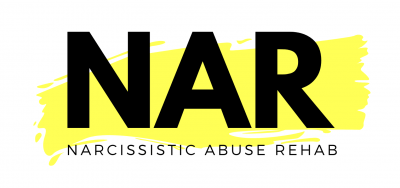If you suffer from anxiety, you are not alone. Prior to the advent of Covid-19, the World Health Organization estimated that anxiety disorders affect 4% of the global population, which equates to approximately 301 million people.1 Research shows that the number of individuals suffering from chronic anxiety jumped by 25% during the coronavirus pandemic as people were overwhelmed by multiple stressors.2 The range of anxiety disorders includes several distinct types, such as Generalized Anxiety Disorder (GAD), Social Anxiety Disorder (also known as Social Phobia), Agoraphobia, Panic Disorder, Obsessive-Compulsive Disorder (OCD) and Post-Traumatic Stress Disorder (PTSD). Effective anxiety management is essential to mental health hygiene.
The Link Between Psycho-Emotional Abuse and Anxiety
Psycho-emotional abuse is a term used to describe any non-physical pattern of behavior that deliberately harms a person’s mental state and undermines their ability to reach their full potential.3 It can be both a cause and consequence of anxiety. People experiencing may engage in psycho-emotional abuse as a maladaptive coping mechanism to shield themselves from feelings of fear, helplessness, and shame.4 For this type of person, acting out can be a way to relieve anxiety.5
On the other hand, people who are targeted for psycho-emotional abuse experience increased feelings of anxiety. For example, exposure to coercive control, the most extreme form of this kind of aggression, can result in the development of PTSD.6
The Benefits of Anxiety Management
Learning to manage anxiety is essential because, if left unchecked, it can have serious consequences for mental and physical health. This is especially true for people who have experienced ongoing psycho-emotional abuse in the context of family or intimate partner violence.7 An integral part of recovery includes learning effective ways to manage anxiety.
Anxiety management offers numerous benefits, significantly improving an individual’s quality of life both mentally and physically. Here’ are some key benefits’s why:
- Improved Mental Health: Effective anxiety management reduces symptoms of anxiety such as excessive worry, fear, and panic attacks. This leads to a more stable mood and a decrease in the risk of developing anxiety-related disorders.
- Enhanced Physical Health: Chronic anxiety can contribute to various physical health issues, including heart disease, high blood pressure, and a weakened immune system. Managing anxiety helps mitigate these risks, promoting overall physical well-being.
- Better Sleep: Anxiety often disrupts sleep patterns, leading to insomnia or restless sleep. Learning to manage anxiety can improve sleep quality, which is crucial for physical health, cognitive function, and emotional regulation.
- Healthier Relationships: Anxiety can strain relationships through irritability, withdrawal, or dependency behaviors. Managing anxiety can lead to healthier interactions with others, enhancing personal and professional relationships.
- Increased Productivity and Focus: Anxiety can impair concentration and decision-making, affecting academic and work performance. Anxiety management techniques can improve focus, clarity of thought, and productivity.
- Enhanced Quality of Life: By reducing the daily impact of anxiety, individuals can enjoy activities more fully, engage more with others, and participate in new experiences without the constant burden of anxiety.
- Better Emotional Resilience: Learning to manage anxiety equips individuals with coping skills for handling stress and challenges, leading to greater emotional resilience and adaptability in the face of adversity.
- Decreased Dependence on Substances: People with unmanaged anxiety may turn to alcohol, drugs, or prescription medication for temporary relief. Managing anxiety through healthier means decreases the likelihood of substance dependence.
In addition to alleviating its symptoms, effective anxiety management also contributes to a more fulfilling, productive, and healthier lifestyle.
One-On-One Support
Individual coaching can be an effective option for those who need personalized support to learn actionable ways to manage anxiety, whether for oneself or a loved one. Discover how to fine-tune your observational skills to discern anxious thinking. Develop the ability to navigate anxiety-inducing stressors or situations. To learn more about our coaching service book a free 15 minute consultation.
References
- World Health Organization, (2023, September 27.) Anxiety Disorders. Retrieved on February 1, 2024. ↩︎
- World Health Organization, (2022, March 2.) COVID-19 pandemic triggers 25% increase in prevalence of anxiety and depression worldwide. Retrieved on February 1, 2024. ↩︎
- Manya Wakefield, (2020, May 2). Psycho-Emotional Abuse: The Essential Guide. Narcissistic Abuse Rehab. ↩︎
- Manya Wakefield, (2023, April 10). Understanding Shame-Based Behavior: Empathizing With People Suffering From Deep-Seated Emotional Pain. Narcissistic Abuse Rehab. ↩︎
- John M. Gottman et al. (1995) The Relationship Between Heart Rate Reactivity, Emotionally Aggressive Behavior, and General Violence in Batterers. Journal of Family Psychology 1995, Vol. 9, No. 3, 227-248. Copyright 1995 by the American Psychological Association, Inc. ↩︎
- Susanne Lohmann, Sean Cowlishaw, Luke Ney, Meaghan O’Donnell, and Kim Felmingham (2023). The Trauma and Mental Health Impacts of Coercive Control: A Systematic Review and Meta-Analysis. Trauma, Violence, and Abuse 2024, Vol. 25(1) 630–647. ↩︎
- Manya Wakefield, (2023, February 18) PTSD and Depression Comorbidity Increase The Risk of Mortality in Women. Narcissistic Abuse Rehab. ↩︎






